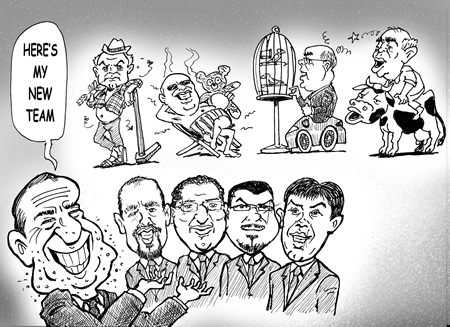Low-cost travel is back in the news. Any discussion of the effect of the arrival of low-cost airlines upon our national carrier should bear in mind a few home truths. Ryanair is an airline carrying forty million passengers yearly. This reality gives the airline much muscle when dealing with foreign governments and aviation authorities. Their presence certainly strengthens local economies and especially the tourism industry, renowned for its multiplier effects.
Knowing this commercial reality, the carrier has a tendency to bully and dictate terms. Negotiations with Ryanair were always going to be tough. The latest spate of mutual accusations in the press has not helped build up the trust factor so necessary in any negotiation process.
Air Malta has in the last years accumulated substantial losses and is in dire need of further restructuring and a forward looking plan. The airline has been driven politically since its inception with successive governments treating it as a job centre. That having been said, the airline made substantial profits for many numerous years and certainly contributed in no small manner to the development of our tourism industry. Without Air Malta our tourism would not have taken off.
The question now is how to marry the survival and growth of Air Malta with the introduction and expansion of low-cost carriers to Malta. The point of departure must be that low-cost airlines are a reality and it is in our national interest to ride on the crest of their wave. They boost our arrival numbers. It is also of paramount importance that Air Malta survives, since no carrier will be as willing as our national carrier to keep investing in our tourism industry. At no stage either should we allow ourselves to become totally dependant on one low-cost carrier. This goes beyond national pride considerations. It is a matter of good commercial sense. Common business sense dictates that a leaner, more commercially aggressive and well-managed Air Malta becomes the recipe for putting the economic fundamentals in place. Accordingly, our national airline should first get its house in order.
This newspaper supports the introduction of more low-cost airlines which can open up as many new routes as possible, preferably running throughout the year. Malta needs to increase the number of arrivals, more so when the average length of stay of many tourists is diminishing to three, four-day city breaks. Low-cost airlines cater for this specific tourist, and more importantly offers a choice to consumers in terms of price and catchment area.
All applications should be welcomed irrespectively of the effect each application has on Air Malta’s revenue. The criterion should not be how does it affect Air Malta, but how many more tourists should it bring to our shores. The political class needs to look at the bigger picture and to recommit itself to the European open skies policy which Air Malta itself, with remarkable results, is rightly exploiting outside our shores.
This government acclaimed competition and aviation freedom rights prior to the referendum as one of the goodies of Europe. We note a sceptical prime minister in his public statements on low-cost. He keeps reminding all that rather than low, it is high cost to the Maltese taxpayer. Indeed, it is the taxpayer who contributes to the subsidised airport fees for low-cost airlines – but it is these subsidies which have enabled our tourism industry to achieve more accessibility and greater arrival figures. This is a fact confirmed by all stakeholders in the tourism industry.
The best way to protect Air Malta is not buy shutting the doors to low-cost airlines but by further restructuring and by a strategic alliance with a foreign carrier. What we cannot afford is further dilly-dallying. The latest controversy on whether to allow Ryanair to fly from Bologna is a no-brainer. There is simply nothing to discuss. It should be granted with immediate effect, especially since the carrier is guaranteeing traffic in the difficult winter months unlike Air Malta, which looks at simply recommencing the Meridiana flights next summer.
The marriage of opening up further Ryanair routes to Malta and the survival of Air Malta can be achieved. The one does not necessarily contradict the other. It requires vision, good working practices at Air Malta and the placing of our national tourism industry as our paramount target. It no longer becomes of us now that we are members of the European union to keep acting like little islanders.
Quote of the week:
“For the moment they merely serve as fresh cherries on a stale cake”
– Lino Spiteri commenting in The Times on Monday, 10 September 2007 about Gonzi’s decision to replace Cabinet ministers with younger candidates during discussions with social partners and civil society

